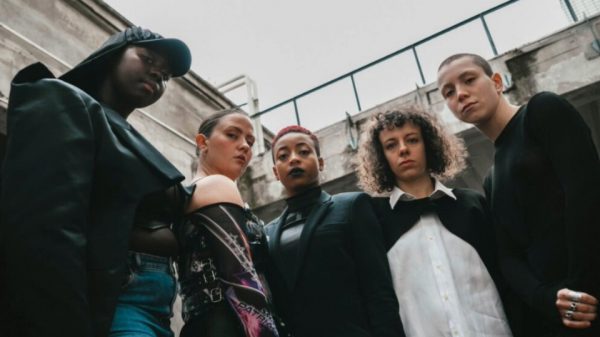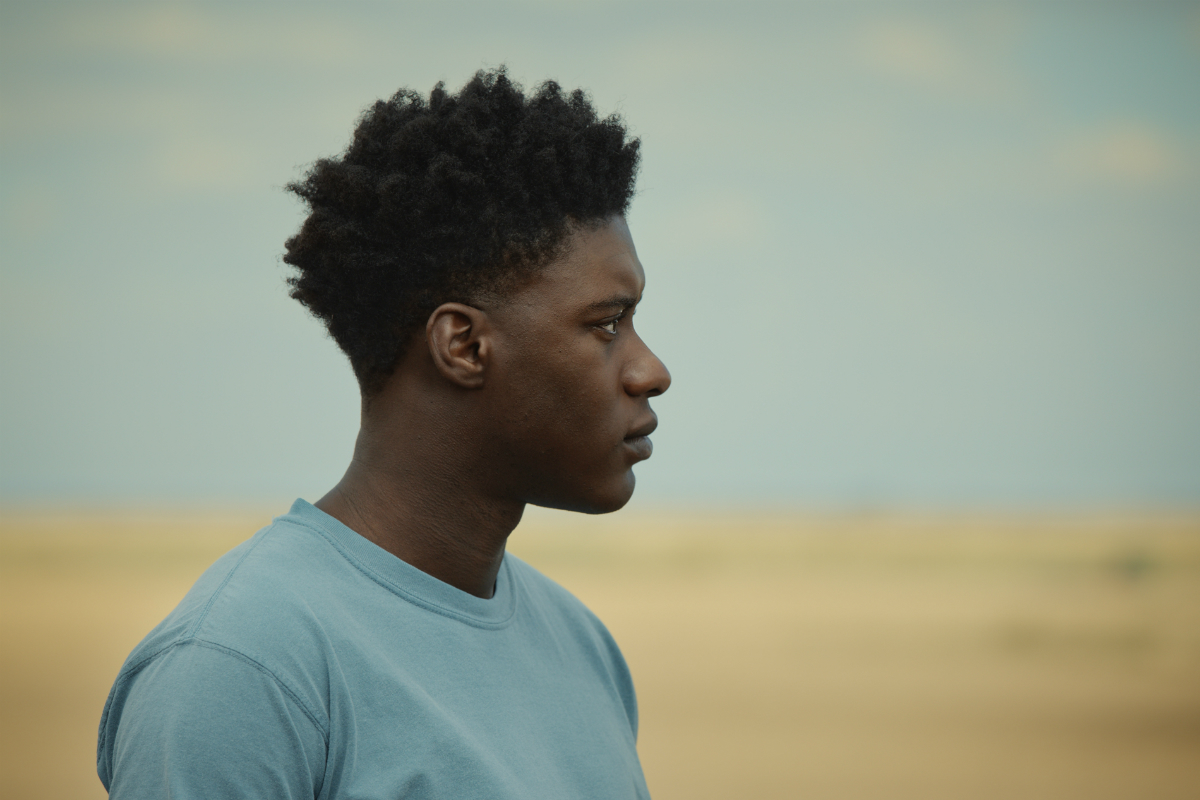A new film explores a young boy’s journey from foster care back to his mother, and growing up feeling out of place. Writer and director Shola Amoo and lead actor Sam Adewunmi speak to Nicole Vassell about the project
British coming-of-age stories on are often centred around the follies of young white boys becoming men, and navigating fledgling romances, changing friendships and the transitions between education and career.
If it’s a coming-of-age tale with a majority cast of black people, however, then you’re likely to have a tale that involves gang troubles, prison sentencing, or someone losing their life at the hands of a peer. And while these stories have their merits, and are likely to represent a lot of people’s true experiences, continuing to only produce projects that tell these stories is limiting. What if there was a story about black male adolescence that explored something else?
In comes The Last Tree – a new film centring on a teenage black boy trying to find his place in society after growing up both in both a mostly white, rural environment, and a majority-black inner cityscape, and not feeling at home in either place. Viewers first meet young Femi (Tai Golding) in rural Lincolnshire, while under the care of his loving foster mother, Mary (Denise Black). From what we can tell, he’s the only black boy in his school, or in his surrounding areas – even in his own home. But as far as six-year-old Femi is concerned, everything is pretty blissful, with friends and after-dinner treats as standard.
However, when his birth mother comes back into the picture with an immediate plan to move him to London, away from the open spaces of the country to the grittiness of an unfriendly estate, his early sense of self starts to chip away, leaving him with plenty of questions. At one moment, he feels not ‘black enough’ because of his musical tastes; the next, he’s too black, or too African because of his Nigerian name. Femi’s on an uncomfortable road of figuring out who he is by wearing different masks and by being other people as a means of survival – but there’s only so long that not being himself can last before things come to a head.
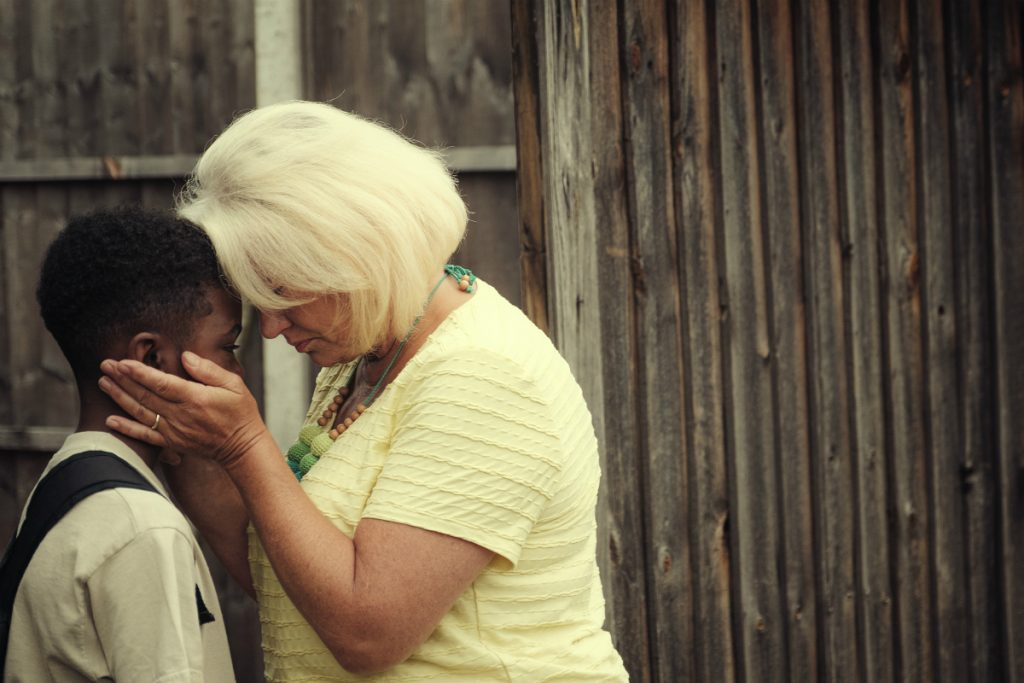
Written and directed by Shola Amoo, the story is rooted in real-life experience; the child of a Nigerian mother, he spent time in foster care with a white family in rural England before returning to live with his mother, in London, and felt a tension between versions of himself when trying to fit in.
‘I wanted to do a story about growing up in one space that’s monochromatic; that experience of coming from a rural, out of London life to a more urban cultural space,’ he explains to me and lead actor Sam Adewunmi during our London interview. ‘I wanted to explore the arc there, of missed cultural understanding.’
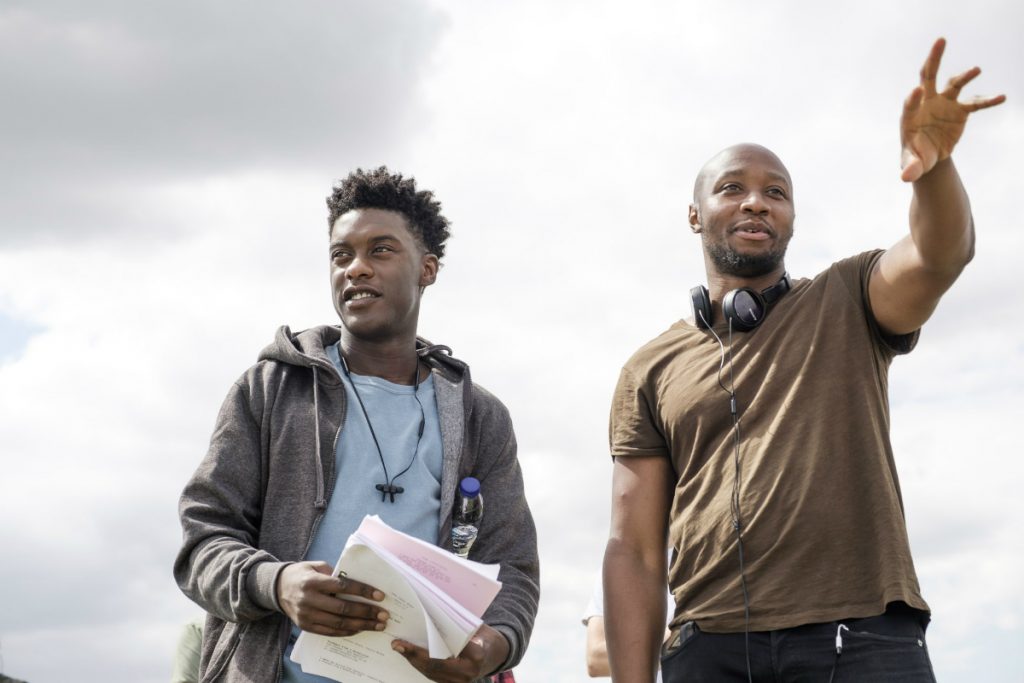
Though Amoo’s childhood shares similar features to Femi’s, The Last Tree is not his exact story; it aims to depict an example of childhood for those with similar life experiences, but haven’t seen their story told before. Amoo continues: ‘Before writing the film, I met with a bunch of other Nigerians who had also been fostered, and created an amalgamation between their stories and mine to come up with The Last Tree – so that we could get something that was specific, and felt real, but also had enough distance and space for me to explore it.’
Even without experiencing growing up in care, parental separation, or having multiple cultural upbringings, seeing Femi struggle with finding who he is feels relatable for all. For Sam Adewunmi, who plays Femi as a teenager, engaging with the words of the script was the first stage of getting into his character’s shoes.
‘The script that Shola had written was so authentic, and I felt I could relate to it in many ways,’ he begins. ‘I’m of Nigerian descent, and I was raised by an amazing single mother – commonalities like that gave me an ‘in’ into the character. With the other things that I hadn’t experienced – being fostered, moving from a white space to a culturally diverse space – I looked up some articles, and looked to those who I knew had gone through something similar to try to really understand what it is; it’s all the human experience.’
As well as the standard angst of teenage years, Femi is also dealing with an underlying sense of anger towards his mother. In his eyes, she’s to blame for leaving him in the first place, and then for disrupting his young life in exchange for one in which he’s left to his own devices while she goes out to work, and is instructed to do traditional house chores.
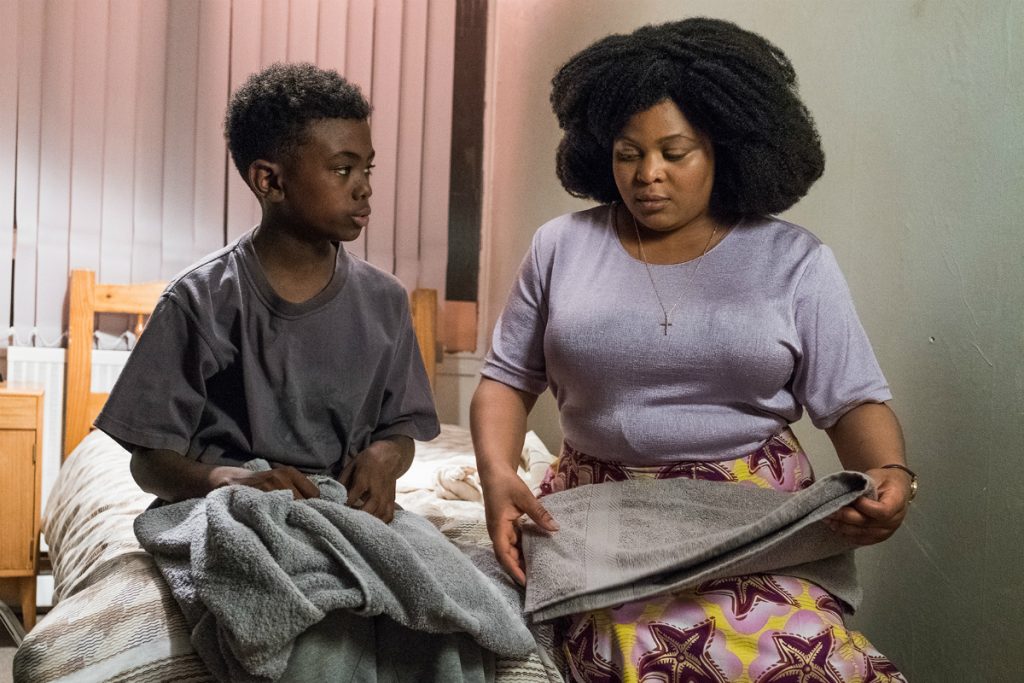
Gbemisola Ikumelo gives a fantastic performance as Femi’s mother, Yinka. Though the story stems from the perspective of a young boy, finding his place, there’s also much to be said for the way that the story doesn’t ignore the position of an immigrant parent who made a tough choice to better her son’s life.
‘The decision to put a child through foster care is a complex one, and it isn’t one borne out of “I don’t like this child”,’ explains Amoo. ‘It’s borne of a thought that’s more like, “I have limited resources; I need him to have the best he can have, so I need to accumulate these resources, bring him back and give him the education and the life that he needs.” That’s a really complex decision to make, so I couldn’t imagine being one dimensional in a scenario like that.
‘There’s even a colonial tension in that, with Nigerians sending off their kids for access into education for a better chance in society, and it’s a scenario that so many of us second-generation children benefit from. With or without foster care, we can all recognise the sacrifice of an immigrant parent, handling a multitude of jobs to try and give us the best opportunity in a foreign land that we have to assimilate into, to make our home.’
As well as The Last Tree exploring the various struggles of growing up as a young black male in 2000s London, the story also touches on a topic that, though applicable to people regardless of gender, tends to be a theme that is particularly resonant for dark-skinned black women and girls: colourism. In a scene at school, Femi’s friend and former bully Dean targets fellow classmate Tope (Ruthxjiah Bellene), teasing her for her dark skin with taunts such as ‘blick’. Though not necessarily essential for the story, incorporating the realities of colourism for young girls was a memorable part of the film, and for Amoo, it was a necessary element to include because of how prevalent this mindset was while he was at school.
‘Frankly, shadeism is a thing,’ he admits. ‘It’s harder for dark-skinned women; it is what it is. You can look at the roots of it, and make the connection to white supremacy and all of that, but I just remember it being quite harrowing at school, so I wanted to have space for that conversation. Ultimately, it’s something that, within the community, I think we need to talk about it and really realise what it is, where it seems from, its history, to be able to resolve it. It’s something that has really negative effects, particularly on a person’s confidence, self-worth and identity.’
Ironically, the characters mocking Tope for her skin colour were the same complexion as she was. Sam recalls seeing similar situations happening while he was at school:
‘It’s like saying: “I’m black, but at least I’m not THAT black.” There’s definitely something we have to figure out as to why that was, and why it still exists. These are conversations that we need to have.’
Without giving away the conclusion of the film, Femi has to make choices about the road he’s planning to follow – whether he starts working with local criminal Mace (Demmy Ladipo), whether he follows the guidance of his well-meaning black male teacher, or goes in search of his own path. From finding strong role models to peer pressure, to reconnecting with your motherland, The Last Tree provides plenty of opportunities for important conversations, and it stands as a reminder that there’s no one way to be black – and no one British coming-of-age story.
The Last Tree is in cinemas from 27th September






